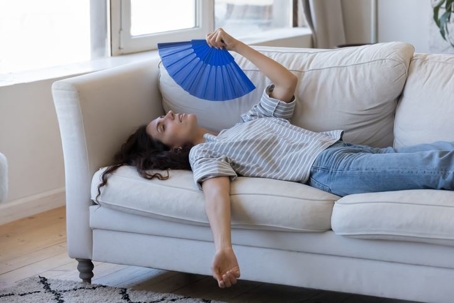As summer temperatures rise in Virginia, so does the humidity. While warm, sunny days are a hallmark of the season, excessive indoor humidity can lead to discomfort, health issues, and even damage to your home. In this blog post, we'll explore the challenges posed by high humidity levels and provide practical strategies to help you maintain a comfortable and healthy indoor environment throughout the sweltering Virginia summers.
Understanding Indoor Humidity:
Humidity refers to the amount of moisture present in the air. In summer, the warm air holds more moisture, leading to higher humidity levels. While some humidity is necessary for comfort and overall well-being, excessive indoor humidity can have adverse effects, including:
Discomfort: High humidity can make you feel sticky and uncomfortable, hindering your ability to cool down through natural evaporation.
Health Issues: Excessive humidity provides an ideal breeding ground for mold, dust mites, and other allergens that can trigger respiratory problems, allergies, and asthma.
Home Damage: Over time, prolonged exposure to high humidity levels can damage wooden furniture, flooring, and even structural elements of your home.
Reduced Energy Efficiency: Air conditioners have to work harder to cool humid air, leading to increased energy consumption and higher utility bills.
Now, let's dive into some effective strategies to help you control indoor humidity and maintain a pleasant living environment during the Virginia summer months.
- Proper Ventilation: Good ventilation is key to reducing indoor humidity. Here are some tips:
Use Exhaust Fans: Make use of exhaust fans in the kitchen and bathrooms to remove excess moisture generated by cooking and showering.
Cross-Ventilation: Open windows and doors on opposite sides of your home to encourage natural airflow and promote moisture removal.
- Air Conditioning: Your air conditioning system not only cools the air but also helps control humidity levels. Follow these steps:
Regular Maintenance: Ensure your AC unit is well-maintained, with clean filters and proper refrigerant levels, to ensure efficient humidity control.
Set the Thermostat: Set your thermostat to a comfortable but not excessively low temperature to maintain a balance between cooling and dehumidification.
- Dehumidifiers: Using a dehumidifier is an effective way to control indoor humidity levels, especially in areas prone to excess moisture:
Basements and Crawl Spaces: Place dehumidifiers in basements and crawl spaces, where humidity tends to be higher.
Portable Units: Consider using portable dehumidifiers in rooms where humidity is a persistent issue.
- Sealing and Insulation: Properly sealing and insulating your home can prevent outdoor moisture from infiltrating indoors:
Weatherstripping: Ensure doors and windows are properly sealed with weatherstripping to prevent outdoor humidity from entering.
Attic Insulation: Adequate attic insulation can help regulate indoor temperature and humidity levels.
- Houseplants and Indoor Pools: Be mindful of the impact of houseplants and indoor pools on humidity levels:
Houseplants: While plants add beauty to your home, they release moisture through a process called transpiration. Group plants together and avoid overwatering to control humidity.
Indoor Pools and Hot Tubs: Ensure proper ventilation and use pool covers to minimize humidity generated by indoor pools and hot tubs.
Controlling indoor humidity during Virginia summers is crucial for maintaining a comfortable living environment. By implementing the strategies discussed in this guide, you can enjoy a cool and dry home without the negative effects of excessive humidity. Remember, if you need professional assistance or want to explore advanced humidity control solutions, our team at Air Treatment Heating & Cooling is here to help.
Contact us today to schedule a consultation with our experienced HVAC technicians.

